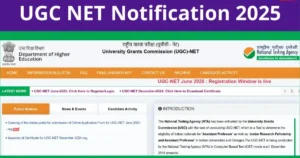Table of Contents
NCF Full Form : NCF Full form is National Curriculum Framework. The National Curriculum Framework 2005 (NCF 2005) is the fourth National Curriculum Framework published in 2005 by the National Council of Educational Research and Training (NCERT) in India. The NCF 2005 prepared to maintain syllabus, textbooks, and teaching practices for the schools in India. Here we are going to learn NCF 2005 meaning, full form and objectives.
NCF Full Form Highlights
| NCF Full Form | National Curriculum Framework |
| Published | 1975, 1988, 2000, 2005 |
| Published By | National Council of Educational Research and Training (NCERT) |
| Document Translated | 22 Languages |
| Before NCF 2005 | NCF 1975, NCF 1988, NCF 2000 |
| After NCF 2005 | NCF 2009, NCF 2014 |
NCF Meaning
NCF i.e. National Curriculum Framework. NCF 2005 has been based on previous policies such as Learning Without Burden and National Policy of Education 1986–1992 & focus group discussion. National Curriculum Framework was envisioned as a means of modernizing the system of education. NCF 2005 make curriculum easy and understandable for children which helps in teaching and their learning process.
NCF Principles
The principles of NCF 2005 are given below :
- connecting knowledge to life outside the school,
- ensuring that learning shifts away from rote methods,
- enriching the curriculum so that it goes beyond textbooks, and
- making examinations more flexible.
Focus of NCF
- Learning without burden to make learning a joyful experience and move away from textbooks to be a basis for examination and to remove stress from children.
- To develop a sense of self-reliance and dignity of the individual which would for the basis of social relationship and would develop a sense of maturity, openness in society
- To develop a child centered approach
- Values enshrined in the Constitution of India,
- Reduction of curriculum load,
- Ensuring quality of education for all (EFA)
- Systemic changes,
- Common school system,
Features of NCF
NCF stands for national education system which is given by NCERT. NCF main aim to bring minimum level of learning at all levels providing minimum facilities to all schools of nation so that quality of education can be provided to children. NCF 2005 recommends
• Bringing arts, work, peace, health, physical education into the domain of the curricular system which helps in all areas of learning at relevant stages.
• Learning should be problem-solving and competency-based.
• Use of technology in teaching-learning
• Curriculum would be learner centric with flexible designs, processes providing wider social context to learning as well as multiple and divergent exposures
NCF and Curriculum
National Curriculum Framework-2005 (NCF-2005) articulated the need for connecting knowledge to life outside the school, understanding about construction of knowledge, helping/facilitating learner in knowledge construction, creating a fear free atmosphere, addressing diversity and inclusion, equity and quality. NCF 2005 have played an important role in the development of school education in the
country, especially with regard to its content and its transaction in the classrooms. NCFTE-2009 plans a programme for teacher education by incorporating the socio-cultural contexts of education, visits to innovative centers of pedagogy and learning, classroom based research, and internship of longer duration.
- Language- Languages are an important part of every subject which contains reading, writing,
listening and speech. In NCF 2005 , languages contribute to a child’s progress in all curricular area and learning process. - Science – Science emphasized on experiment based learning in school science curriculum which improves school libraries, laboratories and workshops work. NCF 2005 promotes culture of experiment based learning which helps children to examine and analyze every day experiences.
- Mathematics – NCF 2005 helps in Mathematics learning to enhance the child’s ability to think and reason, visualize and handle abstractions and formulate and solve problems.
- Environment Education – NCF 2005 also emprises on environmental education should become part of every subject.
- Social Science – Social Science recommends a paradigm shift to study from the perspective of marginalized groups. It recommends gender justice and sensitivity to tribal and dalit issues and minority sensibilities.
- Work Education – NCF 2005 focus on work education in cloasson for children. Work education should be recognized as a creation of new forms of knowledge and value addition. Work education must link up with heritage crafts, especially in craft zones.
- Critical pedagogy – Critical pedagogy provides an opportunity to reflect critically on issues in terms of their political, social, economic and moral aspects. Critical pedagogy facilitates collective decision making through open discussion and by encouraging and recognizing multiple views.
Read Also :
| CTET News | KVS News |
| UP TGT PGT News | UGC NET News |
| NCF 2005 – National Curriculum Framework 2005 PDF | |




 UGC NET Notification 2025 Out, Exam Date...
UGC NET Notification 2025 Out, Exam Date...
 CSIR NET Cut Off 2025, Download Subject ...
CSIR NET Cut Off 2025, Download Subject ...
 CSIR NET Life Science Cut Off Marks, Cat...
CSIR NET Life Science Cut Off Marks, Cat...














